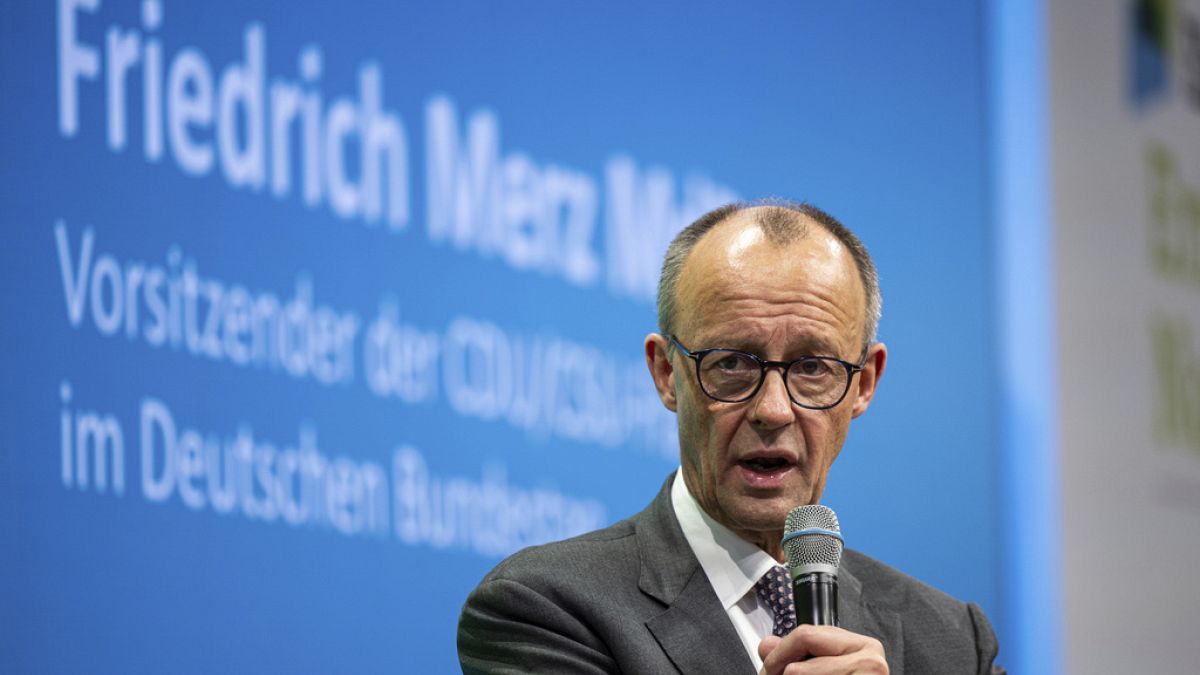Europe
Who is Friedrich Merz, the favourite to become Germany’s chancellor?

The Rise of Friedrich Merz: A Potential Chancellor
Friedrich Merz, a 69-year-old seasoned politician, stands at the brink of a historic moment as he leads the Christian Democratic Union (CDU) into a pivotal snap election on February 23. With Germany’s political landscape shifting, Merz’s long-awaited opportunity to become Chancellor draws near. His journey, spanning decades, reflects a blend of perseverance and strategic evolution, positioning him as a key figure in German politics. Merz’s ascent is marked by a consistent lead in polls since Chancellor Olaf Scholz’s government faced a confidence vote loss in December 2022, underscoring his potential to steer Germany towards a more conservative future.
A Politician’s Journey: From Early Ambition to National Prominence
Merz’s political career began in his youth, joining the CDU while still in school. His early ambitions led him to study law, setting a foundation that would later influence his policy-making. He entered the European Parliament in 1989, marking the start of a successful political trajectory. Transitioning to domestic politics in 1994, Merz became a member of the German Parliament, steadily rising through the ranks. However, his ascent was tempered by a rivalry with Angela Merkel, leading to his eventual sidelining within the CDU. This period of political eclipse prompted Merz to explore the private sector, where he held significant roles at companies like BlackRock Germany and HSBC, gaining valuable insights that would later shape his economic policies.
Policy and Controversy: Charting a Conservative Course
Merz’s political resurgence in 2022, as CDU leader, was marked by a shift towards conservatism, particularly evident in his stance on immigration. Advocating stricter regulations, he proposed measures including border controls and deportations, sparking debate on legal and humanitarian grounds. His controversial decision to collaborate with the far-right Alternative for Germany (AfD) to pass immigration policies drew criticism, though he later ruled out future cooperation. This episode highlights Merz’s willingness to navigate politically risky terrain, underscoring his commitment to reshaping immigration policies aligned with his conservative vision.
Economic Vision: A Blend of Pragmatism and Controversy
Merz’s economic strategy reflects his private sector experience, emphasizing reduced social spending and government downsizing. He criticizes Scholz’s policies for exacerbating economic stagnation, advocating for tax cuts and subsidy reductions. While these measures aim to stimulate business growth, critics warn of potential revenue shortfalls and social disparities. His approach seeks to balance economic vitality with fiscal responsibility, yet remains contentious among voters and economists alike.
Foreign Policy: Asserting Leadership and Supporting Allies
On the international stage, Merz asserts Germany’s role as a leading EU member, emphasizing the need for stronger leadership. His address at the Munich Security Conference highlighted support for Ukraine, including NATO accession, showcasing a resolute stance against Russian aggression. This aligns with his vision of a robust EU, capable of navigating geopolitical challenges effectively. Merz’s foreign policy strategy underscores a blend of strength and solidarity.
Personal Life: Beyond Politics
Away from politics, Merz’s life reveals a man of diverse interests and steadfast commitments. Married with three children, he is an avid aviation enthusiast, owning and piloting two aircraft. This passion offers a glimpse into his personality—disciplined, adventurous, and passionate. Merz’s hobbies mirror his political career: calculated, focused, and driven by a clear vision for Germany’s future.